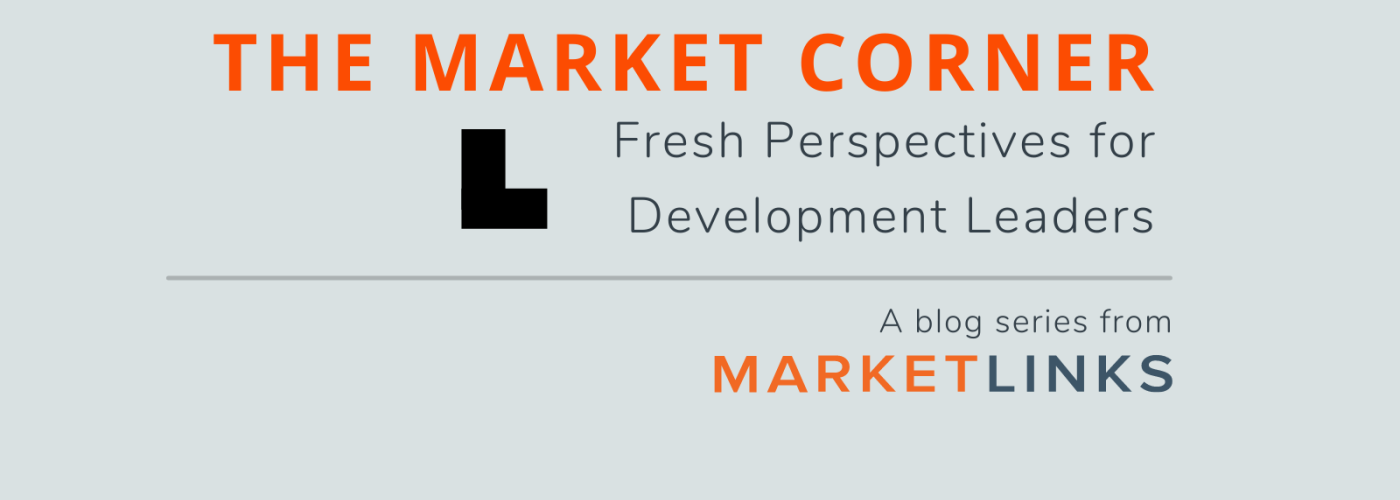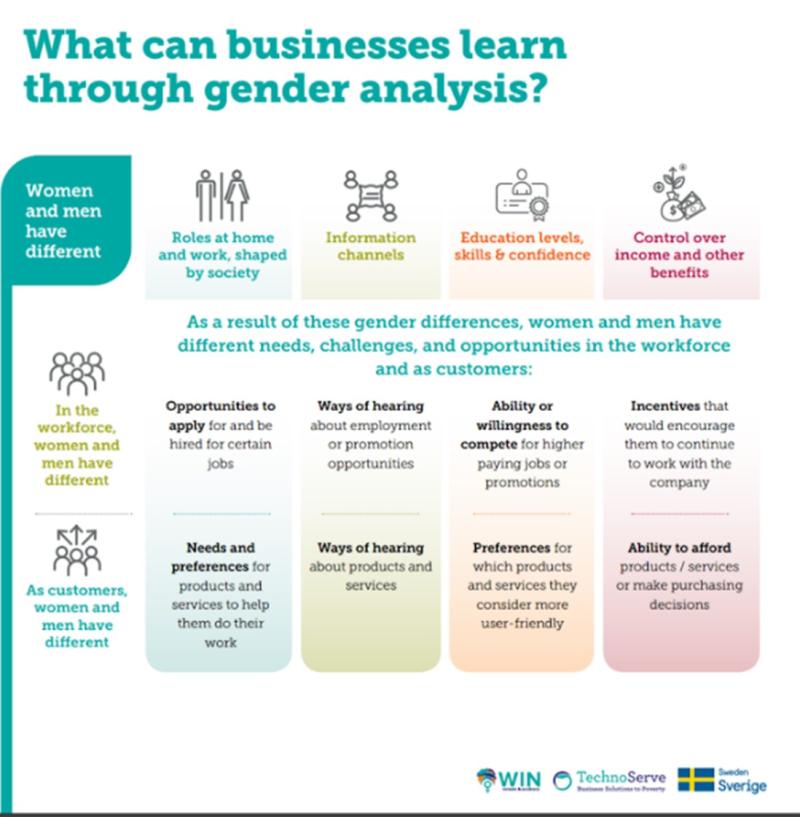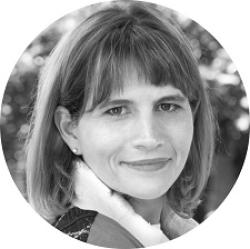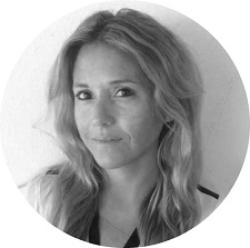The Market Corner: Discovering and Sharing Market Systems Development Tools and Resources at MSS2022
Image

This post was written by Holly Lard Krueger.
During the pandemic, opportunities to step out of our day-to-day and into a place of sharing and learning took on greater importance. For many in the market systems development (MSD) community, the annual Market Systems Symposium (MSS) is one of these special opportunities to come together (virtually) to share, debate, and learn.
In recognition of the events’ importance — while recognizing that only a small group of MSD experts, practitioners, and donors can attend each year — this month’s Market Corner readers get an inside look at the aspirations and expectations of MSS presenter Sarah Bove, Acting Program Director, and participant Renata Makhoul, Acting Deputy Director, both from the Women IN Business (WIN) program. The series also includes practical tips for those who cannot attend but still want to be a part of the spirit of MSS by contributing and discovering MSD-tested tools and resources.
An opportunity to share tested tools and find inspiration
The symposium brings together practitioners from around the world to advance conversations about innovations in research and the application of MSD strategies. The event has an explicit objective of inspiring, building capacity, and facilitating professional connections. The WIN program, an MSD Women’s Economic Empowerment Program in Mozambique funded by Sida and implemented by TechnoServe, sought a role at the symposium this year because it offers an opportunity to both gather new ideas and inspiration for the second phase of the program and share the tools and lessons learned they have accumulated over the past four-and-a-half years of implementation.
According to Sarah, “It took time, but we’ve made the business case for gender integration. There is a real buzz around our program, and we want to share our tools and learnings with the MSD community.” Renata, seconded Sarah’s excitement stating, “I feel like we know a lot more now having assessed the impact of some of our interventions and that we have so much to share with the community. I am looking forward to being more outspoken about our work instead of just absorbing from others. I want to be more present in conversations than last year.”
Making systemic change
WIN plans to share their tested gender guidance and tools like Creating a Gender Equality Policy, Delivering a Gender Training and Conducting a Gender Analysis, which have influenced Mozambican companies to change some of their business practices regarding gender. Sarah and her colleague Deyzes Pereira, WIN's Market Systems Manager, will each present a deep dive session, one titled “Social Inclusion - Working With Media to Influence Gender Norms” on May 11th and another titled “Private Sector Engagement - Incorporating a Gender Lens to Increase Women’s Access to Financial Services” on May 18th.
Image

Graphic: Gender analysis tool. Credit: WIN.
According to Sarah, “We found that if you can get these companies to start doing simple things like disaggregating data by sex, they’ll start paying more attention to their recruitment process or how they target their clients, and the ripple effect continues on from there. Our tools help them take those first steps.” For her, WIN is about making gender systemic.
Innovative monitoring and evaluation approach
During the deep dive session on social inclusion, Sarah plans to present WIN’s innovative monitoring and impact assessment approach for the program’s media interventions. As one part of its portfolio of interventions, WIN worked with different Mozambican media producers and broadcasters to test the hypothesis that the dissemination of creative and engaging gender-sensitive content would positively influence restrictive gender norms on women in business and agriculture, and increase women’s access to information, income, and economic empowerment (see box below).
|
Three Types of Media Interventions Designed and Implemented by the WIN Program
|
In this session, Sarah will demonstrate how and why they combined traditional audience tracking (i.e., market research) with innovative impact measurement tools, such as audience quizzes and surveys sent via mobile phone. She will also talk about the importance of qualitative research (i.e., focus group discussions) in validating their findings.
Not attending the symposium but still want to get your program’s innovative and tested tools out to other MSD practitioners?
WIN and many other MSD programs like 2SCALE, Rwanda Hinga Weze Activity, and Jordan Water Innovation Technology will present tested tools and resources at the symposium. Fortunately for those not attending MSS, there are other platforms MSD professionals can access to share practitioner developed and tested tools. Here are some suggestions:
- Submit the resource to MSD practitioner platforms like Marketlinks and BEAM Exchange. Both platforms encourage community members to regularly submit blogs, tools, guidance documents, and reports.
- Post on LinkedIn. This is a channel I use frequently to get project related tools and resources out to the development community and amplify their visibility.
Do you have suggestions of other ways MSD practitioners can share tested tools and resources? Post via your Marketlinks account or just send them to us at info@marketlinks.org, and we may include them in the next installment of the blog!
Image

Holly Lard Krueger
Holly Lard Krueger is a managing partner at the Canopy Lab and a market systems development expert with over 15 years of experience providing technical advice in the field of private sector development/engagement with a specific focus on applying digital technology, gender equality and social inclusion (GESI), market systems, and Value for Money (VfM) principles to project and strategy design for agriculture, humanitarian aid, business enabling environment reform, trade, urban development, and women’s economic empowerment programs.
Holly is a proven strategic leader, having managed large market systems projects with diverse teams. She is also skilled as a strategic advisor, coach, and trainer in the practical application of systems approaches to market development, and she is currently an advisor to USAID’s Bureau for Humanitarian Assistance, a World Bank-funded program in West Africa (TFWA), a DFAT-funded program in Indonesia (PRISMA), and a FCDO-funded program in the Democratic Republic of the Congo (Essor). Holly is based in Morocco and has worked in over 15 countries in Africa, Asia, and the Middle East and has implemented projects and conducted evaluations for leading donors, including the Bill & Melinda Gates Foundation, DFAT, IFC, FCDO, USAID, and the World Bank. She has an M.A. from Johns Hopkins School of Advanced International Studies and a B.A. from Vanderbilt University.
Image

Renata Makhoul
Renata has over eight years of experience in the social impact space in developing countries, working with business development and start-up acceleration. She is currently the Acting Deputy Program Director for Women IN Business (WIN), a five-year program to promote women’s economic empowerment in Mozambique funded by SIDA and implemented by TechnoServe. Before that, she worked with an impact investing firm in Ethiopia leading an SME development and investment program in partnership with Global Affairs Canada. She also led the first investment readiness program for start-ups in Ethiopia and was responsible for building the pipeline of companies for a Social Impact Business Accelerator in Brazil.
Prior to that, Renata worked for five years in investment banking for financial institutions such as Bank of America Merrill Lynch, participating in several capital markets transactions across many industries. Renata holds an MSc in International Business and Politics from University of London and a bachelor’s in Business Administration from Fundação Getúlio Vargas.
Image

Sarah Bove
With 15 years’ experience in international development and women’s empowerment, Sarah Bove currently works at TechnoServe Mozambique as Deputy Program Director for Women IN Business (WIN), a program that works with private sector actors to catalyze change for women micro-entrepreneurs. She also serves as gender lead, providing advisory services and training to programs and staff on gender sensitive programming, and previously led Business Women Connect, a women’s entrepreneurship and financial inclusion program implemented by TechnoServe. Before joining TechnoServe, she founded IKURU, an ethical fashion label in Northern Mozambique, and has worked as research consultant, M&E officer, and project coordinator in gender relations, sustainable livelihoods, and migration. She holds a master’s in International Development from Lisbon University Institute and a bachelor’s in Social Studies from McGill University.


